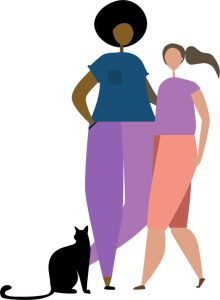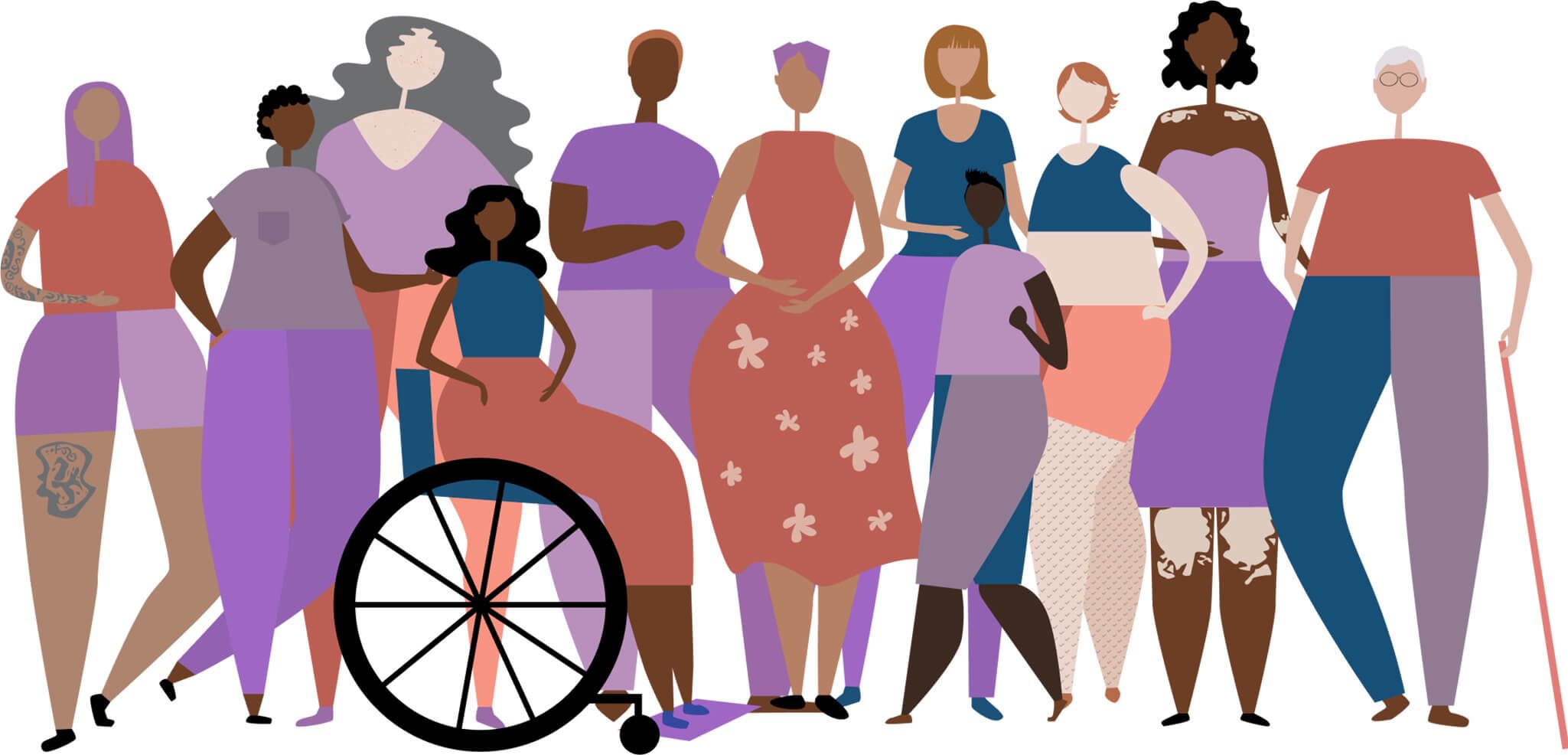How many times have you been asked to describe the challenges you’ve faced based on your sexual orientation and gender identification? How has misogyny, racism, classism, ageism, and ableism impacted the quality of your life? From home to places of education and work, queer women’s experiences play out in ways that often do not address the economic security, mental health, and physical wellbeing of this large and diverse demographic.
As I face the third act of my lesbian life, I have accepted the fact that the picture of my existence is not completely documented, acknowledged, or accepted in the way that it often is for heterosexual, cisgender folks. And yet I know, as a long-term lesbian with deep community roots, that queer women have historically overcome systemic challenges to create amazing LGBTQ lives. We have invented new relational structures, challenged oppressive paradigms and thrived with little support from mainstream society. The danger in not documenting our lives is that they will be lost to time, trapped in the underground of our otherness, little more than obscure in-community knowledge that never sees the daylight of policy or reform. Should we do something to change this fate?
This was the discussion queer feminist activists Dr. Jaime Grant and Urvashi Vaid had around three years ago.
While it was a relief to see the incoming Biden administration express its goodwill to the LGBTQ community, Grant and Vaid — both women have long careers advocating for LGBTQ+ socio-economic justice — knew that tangible change is most often driven by policy, and policy is driven by hard data. But there is little to no data on America’s queer women. And LGBTQ+ women are often not even centered in our own community and equal rights movement.
The solution? To launch the first ever comprehensive National LGBTQ+ Women*s Community Survey. Grant and Vaid gathered an advisory committee consisting of community activists and advocates who, combined, have hundreds of years of experience in the LGBTQ+ community.
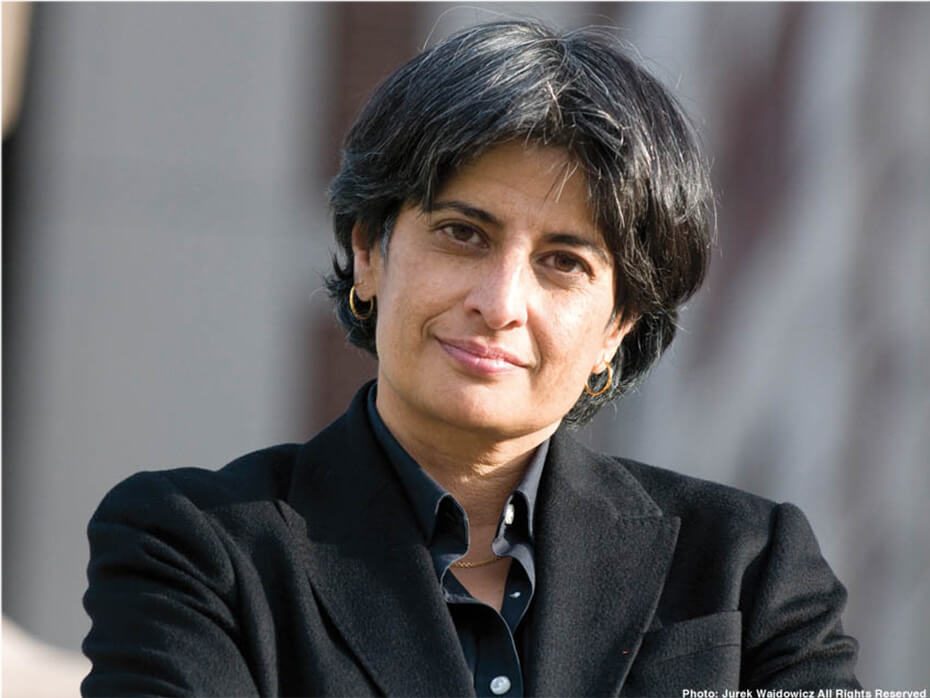
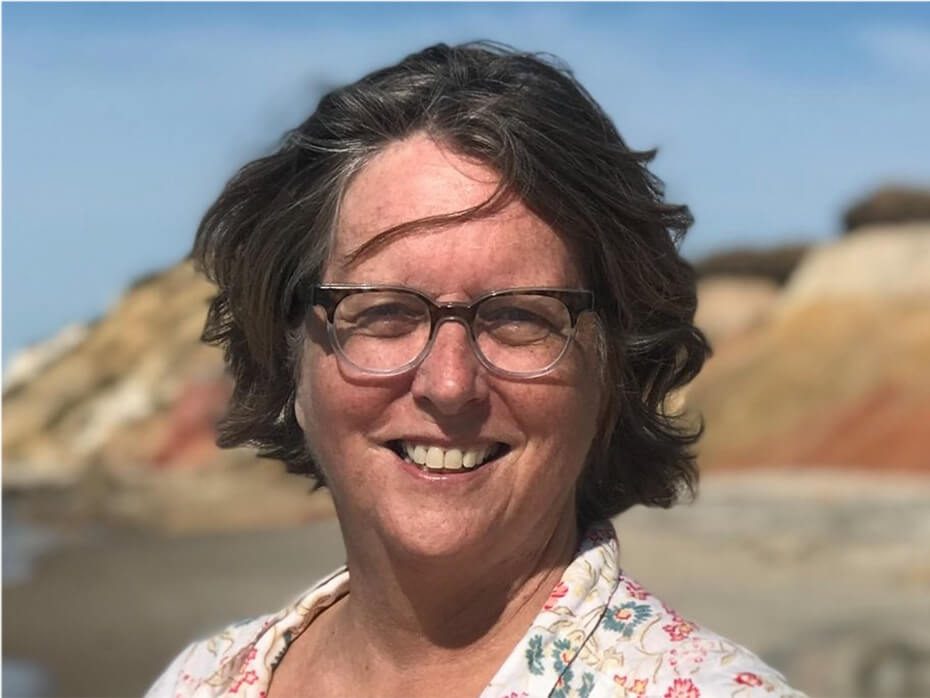
“This project is a labor of love among a group of seasoned community activists, researchers, organizers, and strategists,” explains Urvashi Vaid. “We believe that the experience of surviving sexism in double time — as in with two partners who identify as womxn — presents a unique set of challenges and is also a catalyst for amazing, underappreciated survival strategies.”
“This is why we are calling for the participation of lesbian, bi, pansexual, trans, intersex, asexual and queer women who partner with women; trans men who want to report on their experiences of partnering with women when they identified as or were perceived to be girls or women; and non-binary people who partner with or have partnered with women.”
“We really wanted to create a very nuanced gender and sexuality instrument,” Grant told me last year.
And they have. The National LGBTQ+ Women*s Community Survey is the world’s first genuinely in-depth, large-scale survey of our community. The data will go towards our own visibility, wellbeing, and governance.
With 170 questions, it’s the most comprehensive survey of queer women in history. What else is historic about it?
“I think our questions on gender, sexuality, and family formation are really layered and interesting and allow people to illuminate the fullness of who we are, how we identify, and how we make family and form kinship structures,” says Grant. “We will have this kind of breathtaking snapshot of us — how we define ourselves — coupled with a comprehensive look at how we are surviving multilayered systemic discrimination.”
And there is a heroic component as well: “Most of us are working two jobs or more to try to get this done,” says Grant of the Survey’s team. “We are LGBTQ+ women who partner with women so the team is experiencing so many of the barriers and outrageous demands and conditions we see in the survey — in real time.”
Another challenge? During the entire 2.5 year process, the Survey team has worked remotely, due to the pandemic. Nevertheless, they hope to connect with each other and with respondents at Black Prides and LGBTQ Prides in May and June.
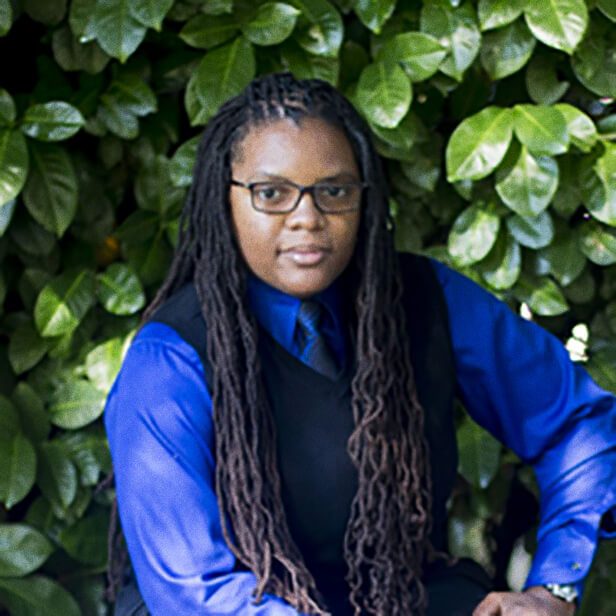
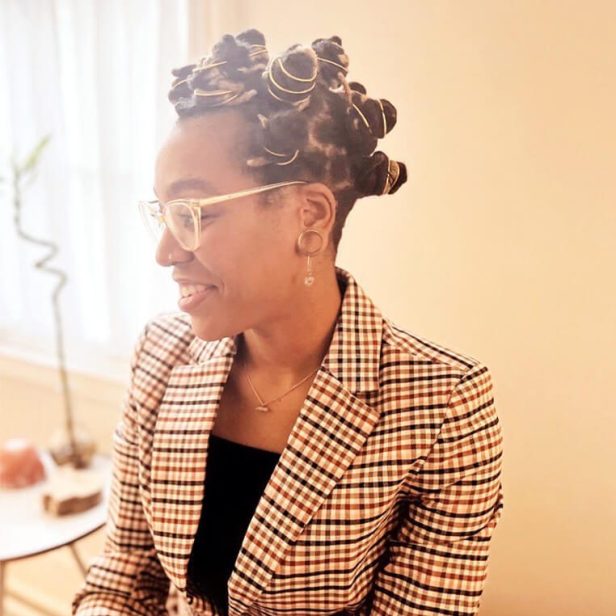
So far, the Survey data has been transferred to a server at Emory University in a confidential university-guarded system. Clark Brinson, a Research Associate with the Survey and a current graduate student in Sociology at Emory University, says around 7,000 surveys have been completed and submitted.
“We are so excited at the response rate we’re seeing, so to maximize this momentum and further increase the diversity of our sample we have decided to remain in the field until the end of the summer,” says Brinson. “We have met some desired quotas – like those ensuring more socioeconomic and age diversity — and we are still actively working to make this the most ethno-racially diverse sample that we can. So, in the coming months, we will be specifically targeting Black, API, and Latinx communities in order to enhance our capacity for analysis within those specific ethnic/racial groups.”
While the data has to be analyzed, some patterns are already emerging.
“Two things that our sample has revealed is just how many LGBTQ+ women and individuals assigned female at birth are living with disabilities and how many of us are having negative experiences with our legal system,” reveals Brinson. “For example, respondents are bringing up major issues of accessibility, in the broader culture but also within the queer community. Many respondents report that accessibility not only impacts their experience with the healthcare system but can also sometimes keep them from participating in LGBTQ+ events and gatherings, which can increase feelings of isolation.”
Grant adds, however, that there are still some gaps and you might be able to help.
“We are really focusing on BIPOC respondents in this final push for participants. Of course, we want everyone in the community to get involved! And we know that much research on our community undercounts and fails to address the needs of BIPOC, economically precarious, and undocumented women,” says Grant.
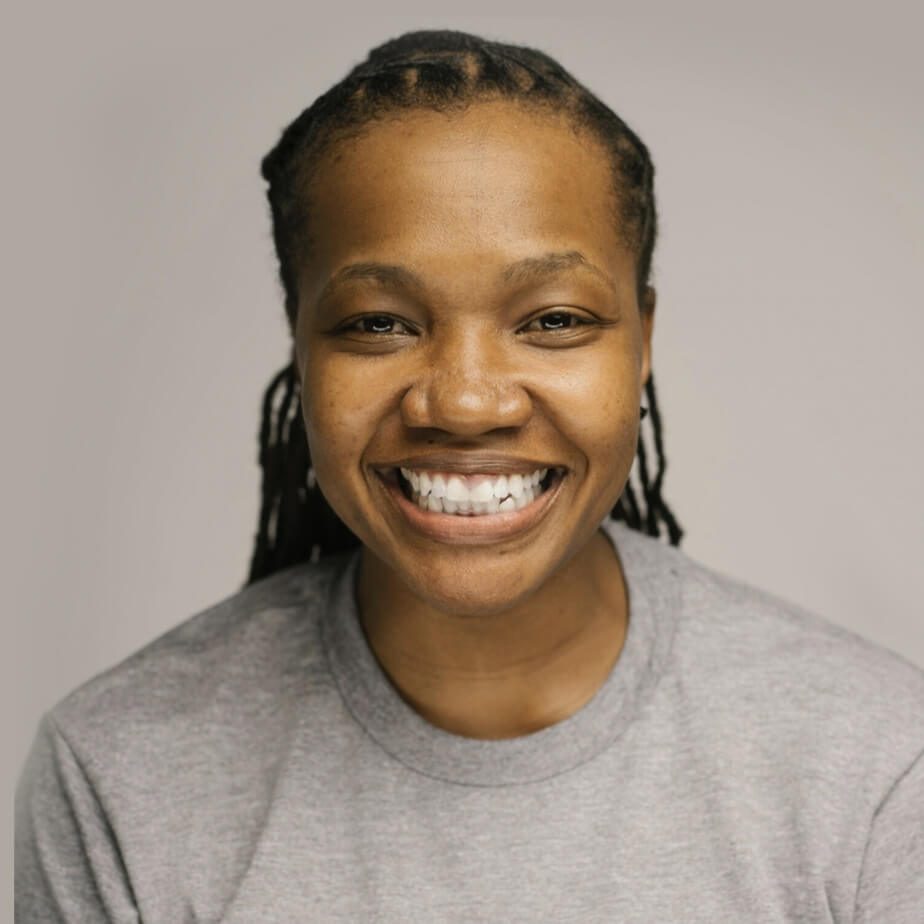
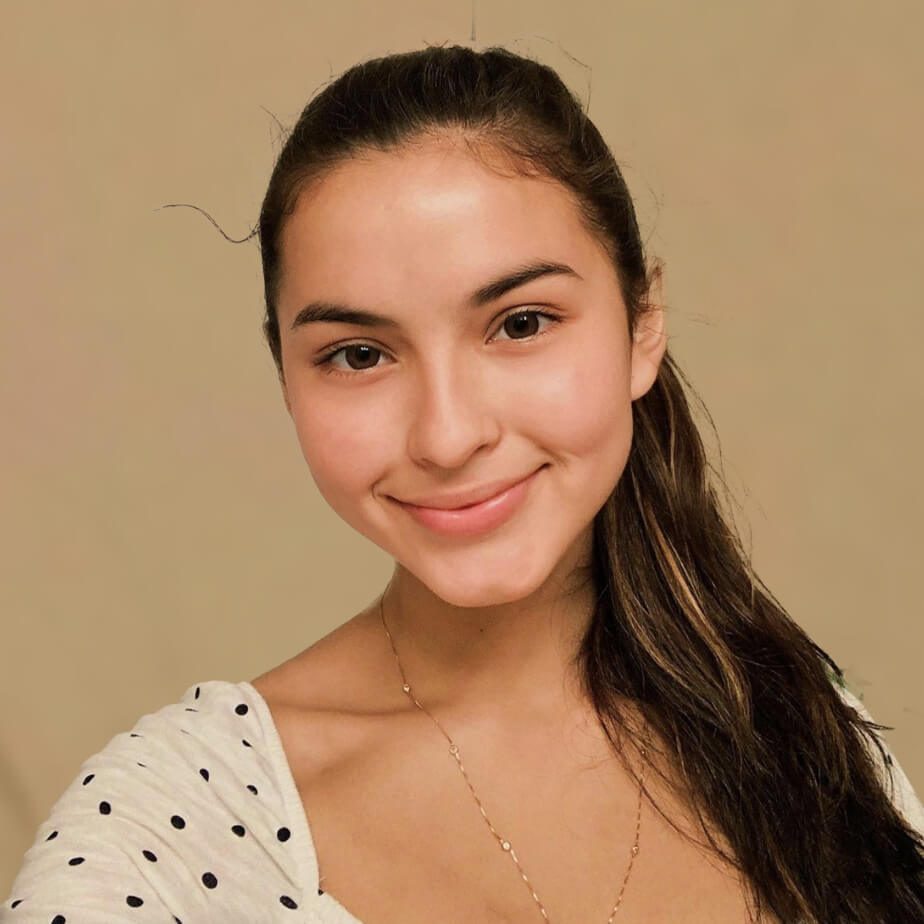
“We’ve been in plain sight for years, advocating for ourselves in every way we know how — BIPOC queer women have been organizing against police violence and social discrimination since the 1960s at least. This data will show “the outcomes of living under a multiplicity of systems of oppression,” says Grant. “We are going to have new things to say about how these systems are playing out in our lives, and who among us is carrying disproportionate burdens.”
Even though it’s Women’s History Month, queer women are too often lost in the shuffle of the 31-day calendar nod to visibility. The Survey hopes to plant a flag for us.
“Who are we? What matters in our lives? What do we want people to know about how hard it is out here for us? How are we supporting each other? What makes it possible for us to thrive?” asks Vaid. “We need all of our stories to build the families and futures we want and deserve.”
“A core goal of the Survey is to illuminate what is obvious to so many of us working on the ground, and is as yet unaccounted for in LGBTQ movement priorities and advocacy efforts: LGBTQ+ womxn who partner with women are facing double, triple and even quadruple jeopardies as we work to secure our lives and our families: sexism, racism, queer and transphobias, ableism and economic injustice form a nexus of obstacles to building the lives we want and deserve,” says Grant.
“We also expect that the findings of the study will powerfully testify to the richness of LGBTQ+ women’s lives, highlighting our genius as survivors of multiple systems of violence, our unique kinship structures, and our resilience. We are excited to influence the LGBTQ+ movement, the women’s movement, work on reproductive justice and decarceration and abolition. We want to be able to put a lot of very accessible tools into the hands of organizers, very soon.”
The closing date for the Survey is June 30, 2022. Take the survey here.
